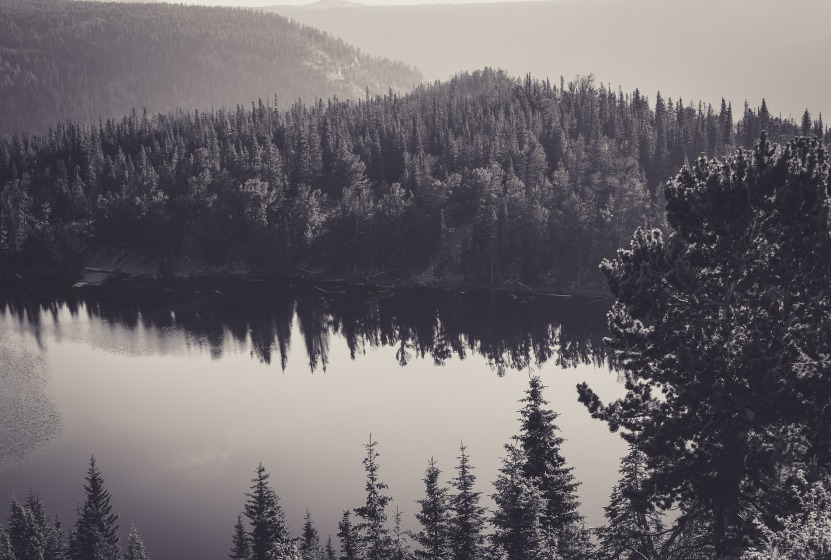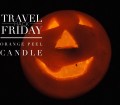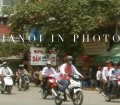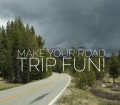There’s a special place in my heart when it comes to the great outdoors. As John Muir once said, “Thousands of tired, nerve-shaken, over-civilized people are beginning to find out going to the mountains is going home; that wilderness is a necessity”. Camping in the wild is an opportunity to travel back in time; a chance to reconnect to an uncluttered, simpler existence. It’s an opportunity to see the earth shaking off it’s slumber, to feel the slow, deliberate embrace of the sun as it illuminates the mountains and the trees in it’s wake. No matter how often you may witness this event, no two experiences are ever alike, each one unique from the one that preceded it.
Camping Guide
Camping is an experience worthy of exploration. Camping is not simply the act of pitching a tent; it is the immersion into nature that qualifies the activity. It is our duty as visitors to these protected lands to understand the personality and the life that hides from our gaze. To know that, although unseen, behind the trees is a the wilderness teeming with life as vibrant as the cities we come from.
Camping is an experience worthy of exploration. Camping is not simply the act of pitching a tent; it is the immersion into nature that qualifies the activity. It is our duty as visitors to these protected lands to understand the personality and the life that hides from our gaze. To know that, although unseen, behind the trees is a the wilderness teeming with life as vibrant as the cities we come from.
With over 59 national parks and 6625 state parks in the US alone, you needn’t travel far for that kick-ass camping trip. A rewarding, budget friendly vacation can be literally a few hours away.
like any activity, to fully harness the experience, preparation is key. The difference between a weekend trip to a kick-ass life altering trip is in your readiness.
My Essential Camping Guide
Decide what type of camping: Backcountry or Car camping
Strong proponents exist for either side with great arguments for either approach. Ultimately, how you decide to camp comes down to your style and the level of comfort that you desire.
Car camping, as it’s colloquially known, is a more luxurious form of camping, allowing you to haul creature comforts such as, air mattresses, larger tents, coolers, food (always a good thing!), games and various pieces of camping furniture, while still being able to enjoy the wilderness. Generally, car camping requires very little advanced planning, survival or wilderness knowledge. Campsites are developed and pre-impacted with established fire pits and within proximity of modernized facilities that are shared amongst other campers. All that is needed to enjoy is optimism for a great time and love for the great outdoors!
Backpacking on the other hand requires a little more physicality. Gear and food is pre-determined by necessity, and limited further by bag volume and what you can carry. But what it lacks in comfort, it makes up for in experience. Backpacking generally offers the best opportunity for solitude, and immersion into the wild country. Unlike car camping, there are no facilities, established camping loops, and in some cases, camping fires are not allowed. Backpacking does require a backcountry permit and some wilderness awareness. Pre-planning is highly recommended for safety. For more information on camping in the backcountry, check out our backpacking blog.
Choose where you want to go camping
Between National and State parks, the US has 6684 protected lands worthy of visitation at one point in your life. So wherever you may be in the US, a park or campground should be accessible with minimal commuting, for a quick weekend adventure fix. Of course, this is not to say road trips can’t be part of the fun too (check out our road trip blog)!
We’ve compiled a list of National parks and State Park websites to help with your research. Click on any of the links below for more information.
List of National parks
List of State Parks
Keep in mind, some parks are more popular than others, and depending on the season you may find yourself competing for that prime campsite. Living in California, my favorites are Yosemite and sequoia/kings canyon. And in my case the proximity doesn’t hurt either.
Best Time to go Camping
Anytime! Short of my own personal enthusiasm of camping all year long, this decision is once again a personal one, and will certainly depend on where you are, where you want to go, type of camping and activities you have planned. Regardless of where you end up, be sure to always check the weather forecast, as weather can change suddenly and radically, especially in the mountains. Some Parks also have winter closures to consider also.
Here are some resources to help you plan your perfect camping trip. I’ve attempted to provide as much detail as possible to help in your research, alternatively, you can also go directly to the National Park Service or the respective State Park websites.
National parks Details page
For most, summer is the best time to go camping. Accordingly it’s also the busiest time for camping. Throngs of vacationers and nature lovers alike peel off from the cities in summer months in order to reconnect with the wild. Finding the perfect campsite will be near impossible. If disappointment’s not in your summer plans, and that it’s affecting your zen, advance reservation is an absolute must.
First come, first serve or reservations
For the more adventurous, first come, first serve campgrounds can be an option. Among the protected lands the National Park Service and State systems oversee, there are always a few that are available on a first come first serve basis. But these are often taken within a matter of moments. Each park differs in their campsite availabilities policies. In most cases, during low-season, reservations are not as imperative and making spontaneous, last minute trips becomes a feasible approach. In the summer months though, I wouldn’t risk it. Successfully finding a campsite becomes a game of patience and luck, with no guarantees. Nothing skewers a camping trip like driving 5 hrs, and failing to get a campsite.
Campsite reservations sometimes have booking windows 6 to 7 months in advance. For example, if your desired camping dates are June 20th, you would reserve on January 20th. The actual open dates for reservations will differ from park to park. For dates by park, go to our parks page
Our National Parks and State Parks page has detailed information on campsite booking windows.
Another idea is to make a hard reservation on a campsite, just as a backup, and then trying for a first come, first serve. These campgrounds sometimes offer gorgeous campsites and unparalleled isolation. If you’re lucky to find that hidden gem, be sure to let the Rangers know, so your previously reserved site can be offered to someone else. In some cases transferring the prepaid reservation is possible.
This strategy will always ensure you have a place to set up tent. Reserve campsites here:
Reserve America
Recreation.gov
Another option is camping in the backcountry. Read our backcountry blog for more information. !
Identifying the perfect campsite
This is one of the most common questions without a clearly defined answer. What makes a perfect campsite is too subjective. A large party may need multiple adjacent sites; if it’s isolation, then the campsite on the tip of the campground loop would be ideal. Yet, whatever your criteria, a perfect site, will surely predicate the perfect trip.
Besides scouring the internet reading opinion after opinion, one resource that I think is awesome is www.campsitephotos.com. They provide photos of the sites allowing you to view it without scouting in advance or showing up blindly to disappointment. Not all parks are represented, but it does give some perspective.
From here, jot down the site number and the park and make your reservations:
Reserve America
Recreation.gov
Driving and parking
Ironically, most parks are very auto friendly. National parks especially tend to have modern facilities which include paved roads, signage and abundant parking. Driving your own vehicle to the park itself is certainly the most convenient method. However, when available, please do take advantage of the parks public transportation system. It’s easier on the environment and offers you the opportunity to do some sight seeing.
Here are some maps of the parks, detailing roads, parking and facilities:
Maps of national parks
Maps of State Parks
Fees
In most cases there will be 2 separate fees for most parks: Park entrance fees, and camping per night fees. Entrance fees and Camping fees sometimes vary depending on your party size. For instance, tent camping with a party of six can be 15 per night, whereas a larger group of 7 to 10 can be 20 per night. As well, different entrance fees vary on if you have a vehicle or not. Go to our park page for an outline of 2015 park fees. Entrance fees are generally good for mulitple rentries within an established consecutive period. Both are pretty much unavoidable, but well worth it as it does go to preservation and maintenance of the parks.
If you happen to be a wilderness nut, annual passes are available for multi-park entrances throughout the US. For national parks and Federal Recreational Lands it is $80 annually.
For state parks, you’ll need to check the relevant websites which you can find here:
Camping with pets
Pet policy will differ across all the National and state parks. Restrictions usually apply to the backcountry, and trails as this protects both pets and wildlife from diseases and each other. Within the campsite, leashed pets are generally allowed. This isn’t an across the board rule however, as some parks have more relaxed rules governing pets whereas others do not allow them at all. To make it even more confusing, some parks, such as those in and around Big Sur California, Federal and State jurisdications may have overlapping regulations. The take away, do your research to avoid penalties or limiting your own activities. Our park page lists pet policies by destination.
National park page
Official park website are also generally very up front with pet policy
Things to do: Outdoor activities
At every campsite, you’ll be sure to have plenty of activities to keep you and the family busy. Camping is an opportunity to bring out your outdoor gear and go crazy! Depending on the park, activities range from easy to challenging hikes, canoeing and rafting, climbing, fishing to horseback riding, and in some cases winter sports as well. For the nature lover, there’s always photography and night astronomy. More specific activities will be dependent on where you are, and the park you decided to visit. Our Parks page lists the activities by destination.
Make your lists:
Have a good checklist for items such as food, clothing, and gear to avoid leaving something important behind. Although everything you need can be purchased for a premium at the lodge, try to avoid this extra expense and bring the items you need with you.
See our other guides to help with your camping preparations. Feel free to add anything else essential for you trip, and print, use and distribute freely!
Wilderness Awareness – Guide To Staying Safe
Car Camping Gear – Guide to Essential Equipment
Food Guide
Now Get out there, stay safe and enjoy!
Carey
Latest posts by Carey (see all)
- Travel Hack Friday: #DIY Orange Peel Oil Candle #travelhacks - October 16, 2015
- Hanoi Vietnam, The Photoscape! #Hanoi #Vietnam #Southeastasia - October 5, 2015
- Travel Hack Friday: How to Find Edible Bugs - October 2, 2015















